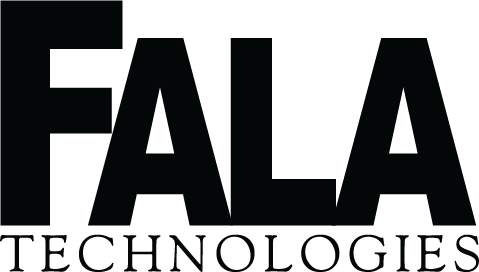FALA Technologies: Manufacturing Career Opportunities
Employer Case Study: Learn about an innovative pre-apprenticeship program for people with disabilities in New York’s Hudson Valley.
FALA Technologies (FALA) is a manufacturing and engineering company that specializes in making industrial equipment for semiconductor, aerospace and green energy technologies. The Kingston, NY-based company has been in operation since 1946, when it was founded by Frank Falatyn, Sr. as a family-run machine shop. Today, FALA Technologies is still a family business, with President Frank Falatyn at the helm of a 40-person staff.
Watch videos about FALA's pre-apprenticeship program.
Mr. Falatyn has helped spearhead the success of his company by anticipating and adapting to industry and workforce trends. Under his leadership, FALA has set standards for workforce training and access practices that meet business needs through often overlooked talent solutions. These strategies were born from necessity: as talent pipelines in the region began to run dry, FALA found a mismatch between the available workforce and the skills needed to fill available roles.
“All of us manufacturers face a workforce crisis; we are unable to find skilled workers. The answer today is that you cannot find them, you have to create them. The only way to replace critical employees lost through attrition or retirement is to build training programs that will work for everyone.” – Frank Falatyn
At FALA, training programs that work for everyone include an important and often missing piece of the talent pipeline: people with disabilities. FALA’s disability journey began with a single job seeker: a qualified recent college graduate who was struggling to find work due to differences in his communication and interpersonal skills. FALA worked to find the best job fit for him, and was so pleased with the result that they began actively recruiting neurodivergent candidates often overlooked by other employers.
FALA offers New York State Certified Apprenticeship training for CNC Machinists, Toolmakers, Electro-Mechanical Technicians, Welders, Quality Assurance Auditors, Industrial Manufacturing Technicians and Maintenance Mechanics. They also offer pre-apprenticeship and internship programs that include classroom and on-the-job training. To expand these opportunities to more people with disabilities, FALA pursued regional partnerships to improve recruitment efforts, provide extra training and support to participants as needed, and ensure that candidates with disabilities have the pre-requisite skills needed to complete apprenticeships.
FALA developed a strong partnership with the Resource Center for Accessible Living (RCAL), a local nonprofit organization, and its Supervisor of Employment Services, Hillary Nichols. Ms. Nichols and her staff provided training and information about disability to FALA employees and leadership, made recommendations to improve workplace accessibility, and offered job coaching supports as needed. Job coaching services offer individualized support to people with disabilities as they learn and master their jobs and adjust to the workplace. RCAL staff helped FALA work through any challenges as they arose.
The partnership was so successful in helping FALA meet its talent needs that in 2020, they were selected to receive funding from the U.S. Department of Health and Human Services’ Administration for Community Living to develop a pre-apprenticeship program aimed at people with disabilities called “STEM and Technical Exploring Pathways” (STEPs). STEPs offers pre-apprenticeship training and supports to candidates with and without disabilities. The ideal STEPs candidate meets the definition of a priority population under the Workforce Innovation and Opportunity Act (WIOA), and is:
- at least 18 years old,
- a high school graduate,
- has completed 9th grade educational coursework that included basic geometry and trigonometry,
- can use a basic algebraic formula and do basic word problem solving, and
- tried but was unable to complete a community college education or work in related occupations.
Each “step” of the STEPs program results in progression of the candidate from training to paid employment opportunities. Participants progress from assessment to training to on-the-job supports. If needed, the STEPs program offers refresher and remedial math instruction to candidates. Paid positions are available upon completion of the program, including entry-level jobs and introductory or advanced apprenticeships. The program helps candidates unable to meet industry standards for those positions find alternative job placements. FALA provides input on the curriculum and access to training sites. Over half of STEPs graduates have gone on to work in manufacturing jobs.
FALA apprenticeships, including the STEPs program and the partnership with RCAL, have been revolutionary. Mr. Falatyn credits these initiatives with saving his company. With 28% of current FALA employees now enrolled in apprenticeship programs, the company is creating and training the talent they need to thrive now and in the future. FALA recognizes the importance of making sure that candidate pipelines include people with disabilities, and that starts with accessible training and credentialing programs. According to Mr. Falatyn, the STEPs model is achieving its goals, and has been well worth the investment of time and resources. He encourages all businesses to consider pre-employment skills training as an effective solution to talent shortages.





